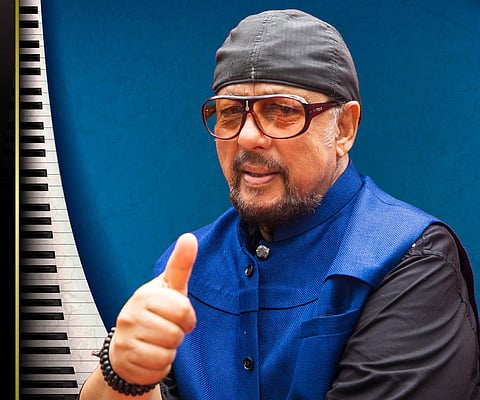
- LIFESTYLE
- FASHION
- FOOD
- ENTERTAINMENT
- EVENTS
- CULTURE
- VIDEOS
- WEB STORIES
- GALLERIES
- GADGETS
- CAR & BIKE
- SOCIETY
- TRAVEL
- NORTH EAST
- INDULGE CONNECT

Born in New Orleans in the early 20th century as American and European classical music entwined with African folk songs with the influence of the West African culture, jazz represents more than just a music form. And most probably it wouldn’t be known to Indians if it wasn’t for Louis Banks. He introduced jazz with a fusion of popular music at a time when jazz had no young listeners and the Indian music scene was dominated by popular commercial music. Louis’ music struck a chord with every young music lover when he performed at Black Box of Park Street in Kolkata in 1971. After this impetus, there was no stopping him. He had found the leverage to make jazz popular again and continues to find different ways to add jazz into his music.
Born into a Nepali family with six generations of musicians, the godfather of jazz music in India — Louis Banks has music in his genes. Though he is known as Louis Banks today, not many know that his parents had christened him Dambar Bahadur Budaprithi. His father Pushkar Bahadur Budaprithi — who was named George Banks by the American jazz player Teddy Weatherford — re-christened his son’s name to Louis, after the great American trumpeter Louis Daniel Armstrong. Coincidentally, when Louis was very young he had indeed developed a fascination for the trumpet but later found his true calling in the keys when he first heard a western pianist play in Kolkata where he moved to from Kathmandu in 1971. After this encounter, Louis started focusing on the piano and now after five decades, his name has become synonymous with jazz music in India.
Fit as a fiddle with a razor-sharp memory, Louis is active like any other young musician and with time, he has reinvented himself as a musician known for the ragtime style of piano playing. For him, the only mantra of success is ‘practice…practice…practice,’ which he received from his father and has passed on to his son and grandson. After his years of experience with jazz music and earning two Grammy nominations, the world-famous pianist continues to enthrall us with his work.
We caught up with the maestro ahead of International Jazz Day (April 30) and he starts off with a modest clarification. “I want to clarify this rumour that I introduced jazz in India. Not true! There was great jazz being played by many exceptional musicians before I came on the scene. But jazz was on the decline because commercial music had taken over and there were hardly any admirers and listeners among the youth. This is where I came in with a fusion of jazz with popular music and it worked. I continue to play jazz in all its wonderful varied styles while reminding myself of the famous quote by Duke Ellington: “It ain’t jazz if it ain’t got that swing.”
Considering that Louis Banks is considered the godfather of the genre in India, we ask him how jazz has evolved with time? He is quick to answer, “Jazz has no boundaries. From ragtime jazz and other styles to modern jazz and jazz fusion, all these different styles are still being played by a few musicians with the same inclination. Nothing dies per se but styles get merged and amalgamated with newer approaches. There is no limit! Jazz is the most democratic music in the world.” In fact he concedes that fusion is a great tool that finds acceptance among most lovers of serious music. He further suggests that one needs to always keep an open mind when listening to jazz as it will keep evolving.
With the next two generations in his family already taking forward the legacy, Louis tells us what that means to him. “I keep writing a lot of new music in many different styles. I want to publish these compositions and leave them for the next generation as my legacy. It’s a great way to keep busy when I’m not performing on stage. I am lucky that my sons keep me going. My wife and family are my support system.” The pianist is all set to perform in Mumbai tomorrow, and we find that he has also curated a course for piano students of the Artium Academy where he tells us that the focus is on contemporary music and songwriting.
Although, he has had many performances to his credit, the musician surprises us with a confession. “Even after all these years of performing hundreds of concerts all over the world I still get nervous before every performance.” However, he concludes on a high note saying, “Once my first number goes down well with the audience, I am relieved. No nervousness, only elation and the desire to give out my best.”
priyanka.chandani@newindianexpress.com